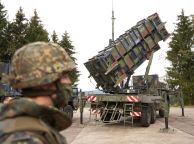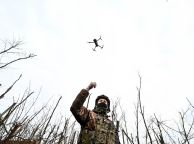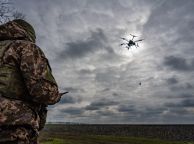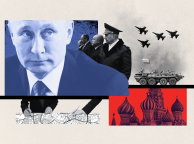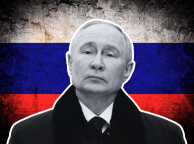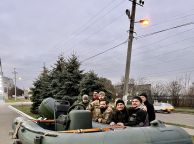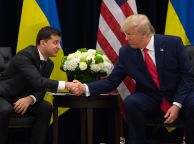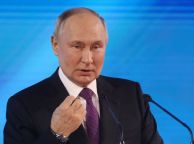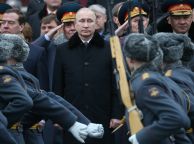By Ellie Cook
In the spiraling race to develop new, better and more drones, artificial intelligence is one of the new frontiers Ukraine is hoping to dominate before Russia gets the chance to edge ahead.
But with the demands of a grinding war, there are pressing concerns over how quickly AI is taking to the skies and how reliable the nascent merging of drones and AI will be in the coming months.
Mykhailo Fedorov, Ukraine's drone tsar and digital transformation minister, has suggested that AI drone prototypes will appear along the front lines in eastern and southern Ukraine before the year is over.
The technology appears to be already there. A Ukrainian drone attack on the Tatarstan region, more than 1,000 kilometers into Russian territory, refocused attention earlier this week on just how far Ukraine's drone reach has extended.
Some of Kyiv's drones, used to zero in on Russia's energy infrastructure, have started using a basic form of AI to tone down the impact of jamming and aid navigation, CNN reported on Tuesday.
"Accuracy under jamming is enabled through the use of artificial intelligence. Each aircraft has a terminal computer with satellite and terrain data," an unidentified source, described as being close to Ukraine's drone program, told the network.
As drones have developed, so have counter-drone technologies. Jamming is a cornerstone of Kyiv's, and Moscow's, attempts to pull down and knock off course enemy drones before they can complete their missions. AI, particularly machine vision, is one tool intended to fight off these effects.
With machine vision, the objective is for the drone to find its way independently to its target, having learned to distinguish where it is in a given terrain.
"The main goal is to sever the dependence on communication between the drone and the operator, and the drone with a satellite for navigation," Samuel Bendett of the U.S. think tank CNA told Newsweek.
Using a drone that can strike a target without any guidance from an operator, completing a mission even with jamming, has obvious battlefield advantages when counter-drone technology is everywhere.
"There are even systems that can look at the ground beneath and puzzle out where it is, to sidestep GPS jamming," U.K.-based drone expert Steve Wright told Newsweek.
With the pressures of war, Kyiv and Moscow are hoping to integrate new, experimental AI in much shorter time frames than many countries in the West have to develop and discuss the technology.
In Ukraine, it is "used rapidly and without significant obstacles or guardrails in order to quickly gain advantage over the adversary," Bendett said.
With AI, it is impossible to be totally sure that the computer will not "do something completely unexpected and unsafe," Wright said. "In the West, we are spending huge efforts wrestling with that problem, but of course the Ukrainians do not have that luxury."
Russia, too, has said it is putting AI into its drones. Moscow's military, along with volunteer groups, is developing AI "in contrast to the United States' cautious and responsible, if under-resourced, approach," Bendett and analyst Jane Pinelis wrote in a commentary piece for the War on the Rocks website in January.
Both Russia and Ukraine will "attempt to copy each other's AI successes in the shortest time possible, and this AI race is the current tip of the spear in the global AI tech race," Bendett said.
Unnamed sources told Bloomberg in mid-February that several nations backing Kyiv were working to send to Ukraine AI-enabled drones that can attack Russian positions in swarms.



